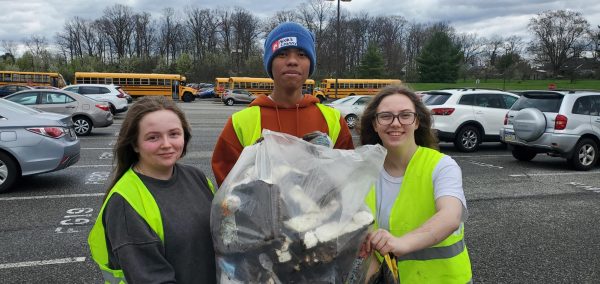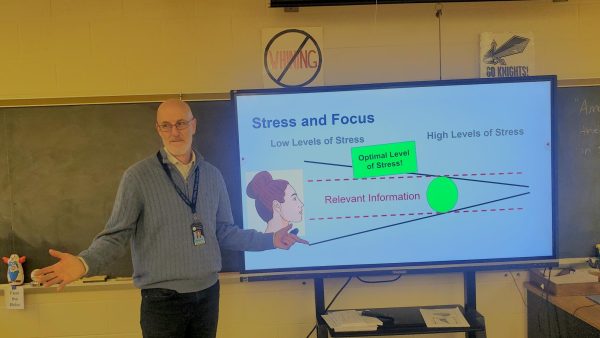8 ways to live environmentally-friendly this summer
Summer days are filled with late night walks on the beach, days spent hanging out with friends, and plans that never seem to end. But with all that comes consequences that will go unnoticed by us and eventually, someone or something will have to pay the price for our greedy decisions. But why does it have to be that way? Having fun shouldn’t leave a negative impact on anyone or anything. You ultimately have the choice to find alternatives that allow you to have fun while saving the planet. This summer, make it a priority to make more sustainable decisions. Here are my suggestions to have the most eco-friendly summer yet:
Use reef-safe sunscreen: One of the active ingredients found in chemical sunscreens is Oxybenzone which is toxic to coral reefs. In fact, in an article by Ocean Conservancy, it states that “once [oxybenzone is] in the water, [it] actually decrease corals’ defenses against bleaching, damaging their DNA and hurting their development.” Coral reefs help to prevent coastal erosion like hurricanes, typhoons, and heavy storms. By protecting them, billions of dollars are saved because there would be minimal damage costs. In addition, coral reefs can be the answer to the cures we’ve been looking for. They are being used for treatment like cancer and can help advance other medical treatments. An alternative option is to find mineral sunscreen that has natural active ingredients such as zinc oxide and titanium dioxide. The difference between mineral and chemical sunscreens is that mineral sunscreen reflects UV rays while chemical sunscreen absorbs UV rays. In order for chemical sunscreen to actually work, it has to be absorbed into your skin which allows harmful chemicals to enter your bloodstream. Mineral sunscreens on the other hand simply just sit on your skin and act as a mirror bouncing away the UV rays. But when shopping for sunscreen this summer, always remember to read the ingredients because not all sunscreens who claim to be “reef-safe” are actually safe.
Think before you decide to purchase balloons: Before you decide to buy a balloon for any type of party you plan on attending, ask yourself: is this necessary? Balloons take around 200 years to completely decompose and in fact, the ones you decided to release into the sky as a child actually went somewhere—landfill. Don’t add on to the world’s waste problem and take the initiative to make a change.
Ditch plastic plates, cups, and utensils: Plastic can not only affect our health by introducing harmful toxins into our body, but it also adds to the waste problem in our world today. The plastic problem is continuing to grow and by 2050, there will be more plastic than fish in the sea. But plastic doesn’t just pollute right after it’s been created, the entire life span of it from the early days of production to the final product harms every aspect of life on this planet. Don’t contribute to the problem and try to refuse and steer towards things that are reusable.
Turn off lights and air conditioners when they’re not in use: Leaving the lights and air conditioning on when you’re not using them wastes an unnecessary amount of energy. It also increases your energy bill! I mean, the list just goes on so you might as well just turn them off already.Bike, carpool, or walk: If you can, try biking to places, asking to come along with friends, or even walking. Cars produce around one-third of all U.S. air pollution. The polluted air can directly affect our lungs causing serious health problems.
Consider flying sustainably: Flying can be take up a large portion of you carbon footprint. In comparison to any other type of transportation, planes are the worst when it comes to its impact on global warming because of the amount of carbon emissions that it releases which continues to increase every year. Consider purchasing carbon offsets that will reduce carbon emissions released during your flight.
Recycle/donate old clothes: Cleaning out your closet for the summer? Consider giving your unwanted clothing a new life at a thrift store or a non-profit organization. Textile waste produces 1.2 billion tons of greenhouse gasses each year. Do your part and allow your clothing to get used up to its fullest potential. (Note: some thrift stores also contribute to the world’s waste, so do your research and find places that will ensure that the clothing will eventually find a home).
Go outside: Go out, explore nature, and take in the outdoors! There’s nothing better than discovering the world around you. Nature will always have something new to show you but it’s your decision to go out and see it for yourself. Besides, it’s summer, go outside while you can.
While you’re heading down to the shore or going out with some friends, take these suggestions into consideration and always remember:
“Progress is impossible without change, and those who cannot change their minds cannot change anything.” -George Bernard Shaw
https://oceanconservancy.org/blog/2018/05/24/sunscreen-killing-coral-reef/
https://wwf.panda.org/our_work/oceans/coasts/coral_reefs/coral_importance.cfm/
https://www.mustelausa.com/mineral-vs.-chemical-sunscreen
https://www.nationalgeographic.com/environment/green-guide/buying-guides/car/environmental-impact/












